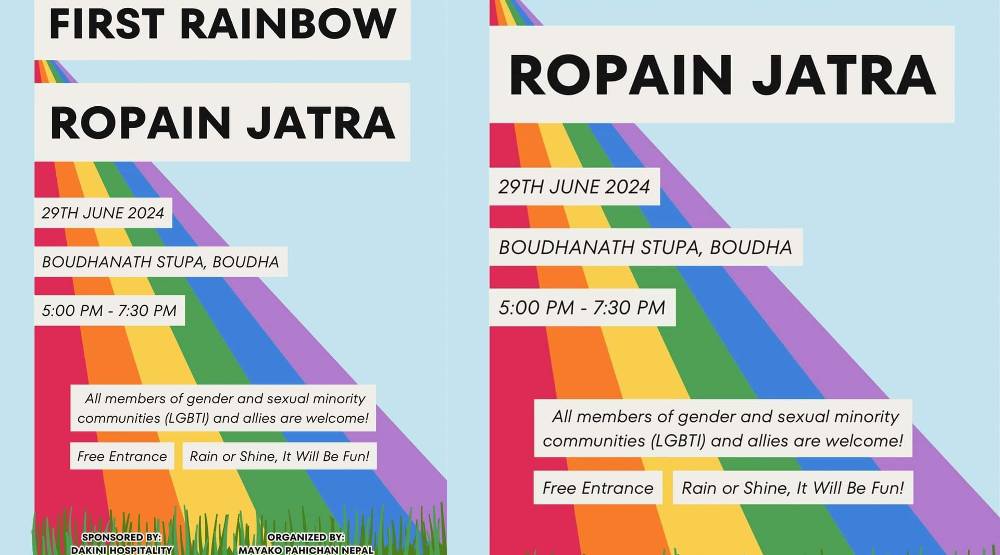Kathmandu, June 25: Mayako Pahichan Nepal (MKPN) in collaboration with Dakini Hospitality is hosting a first-ever Rainbow Ropai Jatra Festival in Nepal. The celebration is scheduled for June 29, 2024 at Boudha from 5 pm onwards.
All preparations for the festival have been complete, said MKPN. MKPN has already announced that the Jatra will be organised by sexual and gender minorities on June 29 according to the lunar calendar.
The festival, which marks the beginning of the monsoon season and paddy plantation, embodies the resilience, hope and cultural diversity of the Nepali people, highlighting their deep connection with agriculture. Agriculture, especially rice farming, largely contributes to Nepal’s economy and culture.
The festival is also a celebration of farming, rain, life, community, gender diversity, food and tradition, emphasising harmony between human and nature. It also highlights the importance of agriculture in Nepali culture.
The Nepali month of Asar 15, coinciding with the festival, is also known as the National Paddy Day. Traditional dances, and Asare songs are sung during paddy plantation. Men often dress up in women’s clothing and celebrate the festival with the addition of a lighthearted touch and playful performances.
MKPN community believes that the festival is inherently associated with MKPN community as men dress up as women during the celebrations. People of this community are found to have been involved in special and respected professions in ancient times. They used to do professions such as dhamijhakri (witchdoctor), panda priest, guru, who would teach dance and music.
Even in the agricultural sector, it seems that this community may have played an important role in teaching the general public about agricultural practices. Therefore, the festival is celebrated as a symbolic representation of the first rice planting training session.
In regions of the Midwest and Far West, Ropai Jatra is known as a tradition wherein the landlord is immersed in a muddy paddy field, and rituals are performed for ensuring the protection and prosperity of newlyweds and newborn babies.
Asar 15 is also popular for eating a mixture of curd, beaten rice, and sugar, providing much-needed energy for farmers during the demanding planting season.
Meanwhile, MKPN has announced plans to celebrate similar local festivals and events throughout the year, reflecting and promoting local culture, tradition and inclusion.
Such festivals promote Nepal’s tourism, said Sunil Babu Pant, Asia’s first openly gay former parliamentarian of Nepal, and MKPN’s executive director. Pant also serves as a cultural ambassador promoting rainbow tourism in Nepal.




